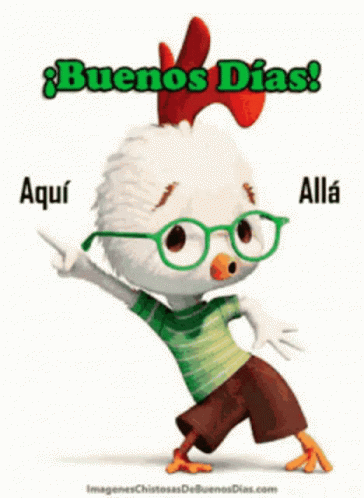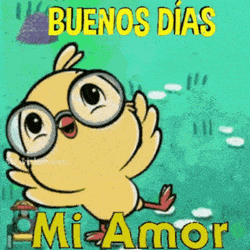Starting your day with a cheerful greeting can truly set a positive tone, especially when it is Wednesday. In many places where Spanish is spoken, the simple phrase "buenos días" is a common way to wish someone well as the morning unfolds. It is a warm invitation to connect, a little verbal sunshine, you know, just to get things going. This particular expression, "buenos días miercoles," really points to the middle of the week, a time when lots of people might need a bit of a lift or a friendly nod.
This phrase, "buenos días," carries more than just a literal meaning; it is, in some respects, a cultural embrace. When you say it, you are not just acknowledging the time of day, but also extending a wish for goodness and well-being. It is a way of sharing a bit of positive energy, a small gesture that can make a difference in someone's morning routine. For a Wednesday, a day often seen as the hump of the work week, a "buenos días miercoles" can feel like a little nudge of encouragement, a reminder that the weekend is, well, closer than it was on Monday.
We are going to explore what makes "buenos días miercoles" such a special and widely used greeting. We will look into the bits and pieces of the Spanish language that make this phrase tick, and talk about how it fits into daily conversations. We will also touch on why words like "buenos" are used the way they are, and how these small linguistic details help paint a bigger picture of how people communicate and connect. It is, you could say, a friendly chat about a very common, yet rather interesting, phrase.
- Connection Hints
- Momentous Supplements
- Antigravity Battery
- Marcus Valley Grand Cinema
- Nobu Cabo San Lucas
Table of Contents
- What's the deal with "Buenos Dias Miercoles"?
- Why "Buenos" and not "Buenas" for "Buenos Dias Miercoles"?
- How Does "Buenos Dias Miercoles" Feel on a Wednesday?
- What's the big idea with "Buenos Dias Miercoles" and its grammar?
- Where does "Buenos Dias Miercoles" fit into daily life?
- Is "Buenos Dias Miercoles" just about the words?
- Can "Buenos Dias Miercoles" brighten your day?
- What makes "Buenos Dias Miercoles" special?
What's the deal with "Buenos Dias Miercoles"?
When someone says "buenos días miercoles," they are, in a very straightforward way, wishing you a good Wednesday morning. This phrase is a common way folks greet each other as the sun comes up and the day gets going. The words themselves are pretty simple, but they carry a lot of friendly meaning. "Buenos" means good, and "días" means days. So, saying "good days" is how Spanish speakers wish you well in the morning, which is a little different from how we might say "good morning" in English, you know, just a single "morning."
The addition of "miercoles" just makes it specific to the day. It is a way of recognizing that it is the middle of the week, a point where people might be feeling a certain way about their tasks or their plans. It is like saying, "Hey, I hope your Wednesday is a good one." This kind of greeting helps people feel seen and acknowledged, which is a nice thing to do, I mean, it really is. It is not just about the words, but about the friendly spirit they carry, a sort of warm hand extended.
It is interesting to think about how different languages put together their everyday greetings. In Spanish, they have distinct phrases for different parts of the day. You have "buenos días" for the morning, "buenas tardes" for the afternoon, and "buenas noches" for the evening or night. Each one is a little package of good wishes for that particular stretch of time. This particular phrase, "buenos dias miercoles," is just one of those friendly packages, ready to be shared as the day begins.
Why "Buenos" and not "Buenas" for "Buenos Dias Miercoles"?
This is a question that often pops up for people learning Spanish, and it is a good one, too. You see, the Spanish language has a way of sorting words into groups, almost like putting them in different boxes. Some words are considered "masculine," and others are "feminine." This is not about actual gender, but just a way the language organizes itself. The word "días," which means "days," happens to be in the "masculine" box. And because there is more than one day we are talking about (it is plural), you use "buenos" to match it. So, it is "buenos días," not "buenas días."
Now, if the word were "tardes" (afternoons) or "noches" (nights), those words are in the "feminine" box. So, you would use "buenas" to go with them. That is why you say "buenas tardes" and "buenas noches." It is a little bit like matching socks, you know? The "buenos" sock goes with the "días" sock, and the "buenas" sock goes with the "tardes" or "noches" sock. It is a simple rule once you get the hang of it, but it is one that really helps make sense of why certain words are used the way they are when you say "buenos dias miercoles."
This grammatical point is pretty important for speaking Spanish correctly, but it is also something that becomes second nature with practice. People who grow up speaking Spanish do not even think about it; it just sounds right to them. For us, it is a piece of the puzzle that helps us speak more like a native, and it is a pretty neat detail about how the language works. So, when you say "buenos dias miercoles," you are actually showing off a little bit of your Spanish grammar know-how, which is, well, pretty cool.
How Does "Buenos Dias Miercoles" Feel on a Wednesday?
A "buenos días miercoles" can feel quite different from a "buenos días lunes" or a "buenos días viernes." Wednesday, or "miercoles," sits right in the middle of the work week, almost like a pivot point. For many, it is a day where the initial rush of Monday has passed, and the weekend still feels a little bit away. So, a greeting on this particular day can carry a specific kind of weight or cheer. It is a moment to acknowledge that you have made it this far, and there is still a bit more to go.
When someone offers you a "buenos días miercoles," it can bring a feeling of shared experience. It is like saying, "We are in this together, and let's make the best of this middle-of-the-week day." This kind of shared sentiment can be quite comforting, almost like a little pat on the back. It is not just a formal greeting; it is a way of connecting on a human level, recognizing the rhythm of the week and the common journey people are on. It is, you know, a very human way to start things off.
The feeling of "buenos días miercoles" might also depend on what you have planned for the day. If it is a day full of exciting tasks, it could feel like a push to get going. If it is a day that feels a bit slow, it might be a welcome spark. Either way, the phrase itself is meant to be positive, a little burst of good will to help you move forward. It is, perhaps, a simple reminder that every day, even a Wednesday, holds its own chances for something good, which is, well, quite true.
What's the big idea with "Buenos Dias Miercoles" and its grammar?
Let's get a little deeper into the way "buenos días miercoles" is built, word by word. We have already touched on "buenos" and "días" matching up because "días" is a masculine plural word. This is a pretty fundamental part of Spanish, where words that describe other words, like "buenos" describing "días," have to change their endings to agree in gender and number. It is a system that helps keep sentences clear and flowing, a sort of built-in consistency, if you will. So, you would never say "buena días" because "buena" is for feminine singular words, and "días" is not that.
The word "miercoles" itself is also masculine, but it is a noun, a name for a day of the week. It does not change its ending when it is plural, which is a bit different from "días." Days of the week in Spanish do not usually have a plural form that changes their ending; they stay the same. So, whether you are talking about one Wednesday or many Wednesdays, it is still "miercoles." This is a detail that, you know, can sometimes trip people up, but it is pretty consistent once you get the hang of it.
Understanding these small grammatical details helps you not just say "buenos días miercoles" correctly, but also to understand why other phrases are put together the way they are. It is like learning the rules of a game; once you know them, you can play more easily and even start to predict how new words will behave. It is a system that, in a way, makes a lot of sense, even if it takes a little bit of getting used to for those of us learning the language. So, when you greet someone with "buenos dias miercoles," you are using a phrase that is grammatically sound and culturally appropriate.
Where does "Buenos Dias Miercoles" fit into daily life?
The phrase "buenos días miercoles" is a regular part of daily interactions in Spanish-speaking communities. You will hear it in homes, in shops, at the office, and on the street. It is a polite and common way to start a conversation or simply acknowledge someone's presence. It is a social lubricant, you might say, helping interactions flow smoothly. People use it with family members, with friends, and even with strangers they pass by. It is a gesture of courtesy that is deeply ingrained in the culture, you know, almost like a reflex.
Consider how you might use it. Walking into a small bakery on a Wednesday morning, you might hear the baker say "¡Buenos días, miercoles!" to a customer, or a customer might say it to the baker. It is a way of creating a friendly atmosphere, a little bit of warmth in the routine of the day. This kind of interaction helps build community, making people feel connected to those around them. It is not just about exchanging information; it is about exchanging good feelings, which is, well, pretty important.
The phrase is also quite versatile. While it is a greeting, it can also be used as a general expression of goodwill. For instance, if someone is having a particularly tough Wednesday, you might offer them a "buenos días miercoles" as a way of saying, "I hope things get better for you today." It is a simple phrase, but it carries a lot of potential for positive impact. It is a small thing, perhaps, but these small things often add up to make a big difference in how people experience their day, which is, you know, a good thing.
Is "Buenos Dias Miercoles" just about the words?
No, it is really not just about the words. The meaning of "buenos días miercoles" goes beyond a simple translation. It carries with it a sense of politeness, respect, and a general wish for well-being. In many Spanish-speaking cultures, greetings are a very important part of social etiquette. To not greet someone, especially when you are entering their space or starting an interaction, can sometimes be seen as a bit impolite. So, saying "buenos días miercoles" is also about showing that you are a considerate person, which is, you know, quite a nice quality.
The tone of voice and the body language that go along with the phrase also add to its meaning. A warm smile and direct eye contact can make a "buenos días miercoles" feel even more genuine and welcoming. It is about the whole package, not just the sounds that come out of your mouth. It is like when you shake someone's hand; the handshake itself is a gesture, but the firmness of the grip and the look in your eye really tell the story. So, the phrase is a tool, but how you use it makes all the difference, which is, well, very true.
Moreover, the phrase can evoke a feeling of routine and comfort. Knowing that you will be greeted with a "buenos días" on any given day, including a "miercoles," can be a reassuring part of daily life. It is a small anchor in the busy flow of the week, a familiar sound that signals the start of the day. This sense of familiarity and predictability can be quite soothing, almost like a gentle hum in the background. It is a simple thing, really, but it contributes to the overall feeling of community and connection, which is, you know, pretty important for people.
Can "Buenos Dias Miercoles" brighten your day?
Absolutely, a simple "buenos días miercoles" can make a real difference in how your day starts. Think about it: you are walking along, perhaps feeling a little tired or preoccupied, and then someone looks at you, smiles, and offers that friendly greeting. It is a small moment of human connection, a brief acknowledgment that you exist and that someone wishes you well. This kind of positive interaction, even a quick one, can give you a little boost, a bit of a lift to your spirits. It is, you know, a very easy way to spread some good feelings around.
It is not just about receiving the greeting, either. Giving a "buenos días miercoles" can also brighten your own day. When you make the effort to be friendly and positive towards others, it often reflects back on you. There is a certain satisfaction that comes from putting good energy out into the world. It is a bit like planting a seed; you put in a little effort, and then you get to see something good grow. So, both giving and receiving this simple phrase can contribute to a more positive outlook for the day, which is, well, pretty neat.
Consider the cumulative effect of these small, positive interactions. If several people offer you a "buenos días miercoles" throughout your morning, or if you offer it to several people, it creates a chain of good will. This chain can make the general atmosphere of a place feel more pleasant and welcoming. It is a subtle thing, perhaps, but these little moments add up to something bigger. They contribute to a sense of shared humanity and a more enjoyable daily experience, which is, you know, quite valuable.
What makes "Buenos Dias Miercoles" special?
What makes "buenos días miercoles" truly special is its blend of everyday practicality and cultural warmth. It is not just a collection of words; it is a piece of a larger way of life where greetings are valued and connections are important. The fact that it is tied to a specific day, "miercoles," adds a layer of familiarity and shared understanding. It is a way of saying, "Here we are, in the middle of the week, and I wish you well for it." This simple phrase carries a lot of meaning for people, you know, more than just the literal translation.
The grammatical structure, with "buenos" matching "días," also makes it special because it is a little window into how the Spanish language works. It shows how words agree with each other, how they fit together like pieces of a puzzle. This underlying order gives the language a certain elegance, even in something as common as a morning greeting. So, when you say "buenos dias miercoles," you are using a phrase that is both grammatically correct and culturally rich, which is, well, quite a combination.
Ultimately, the specialness of "buenos días miercoles" comes from its ability to foster connection and spread good cheer. It is a simple act of kindness, a recognition of another person, and a wish for their day to go well. These kinds of small, positive interactions are what make daily life a bit more pleasant and a bit more human. It is a reminder that even in our busy lives, taking a moment to acknowledge and wish well to others can make a real difference, which is, you know, something worth remembering.
This exploration of "buenos días miercoles" has taken us through the common ways people use this phrase, the specific feel it has on a Wednesday, and the interesting grammar that shapes it. We have seen how this simple greeting is not just a collection of words, but a key part of daily life and a way to connect with others. It is a friendly expression that brings a bit of warmth to the start of the day, helping people feel acknowledged and wished well.
Related Resources:



Detail Author:
- Name : Lora Graham
- Username : madyson20
- Email : darrick24@cassin.com
- Birthdate : 1999-10-17
- Address : 59625 Balistreri Highway Justynville, MO 45648
- Phone : +1 (269) 237-1547
- Company : Durgan, Yundt and Schulist
- Job : Occupational Therapist
- Bio : Officiis magnam ad eum esse. Incidunt beatae tempora est autem velit. Iure dolorem voluptas laboriosam voluptatem. Sunt velit est laborum et eum. Harum ea molestiae qui repudiandae.
Socials
linkedin:
- url : https://linkedin.com/in/rashawn.bashirian
- username : rashawn.bashirian
- bio : Aut ab velit nihil aut tenetur sapiente.
- followers : 1379
- following : 1017
instagram:
- url : https://instagram.com/bashirian2013
- username : bashirian2013
- bio : Excepturi totam velit quo corporis et. Debitis possimus voluptatem rerum nisi ut iste.
- followers : 2155
- following : 1202